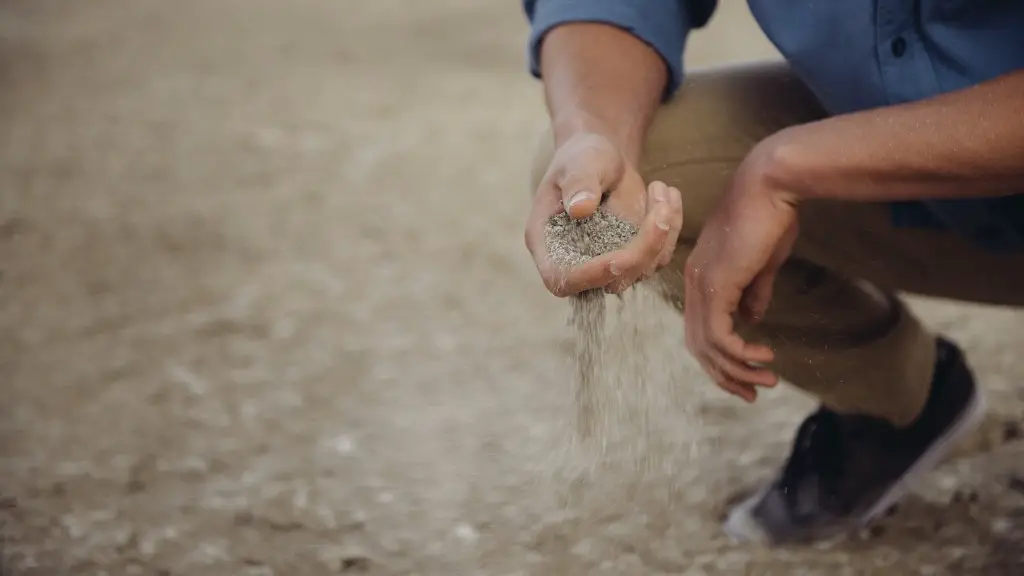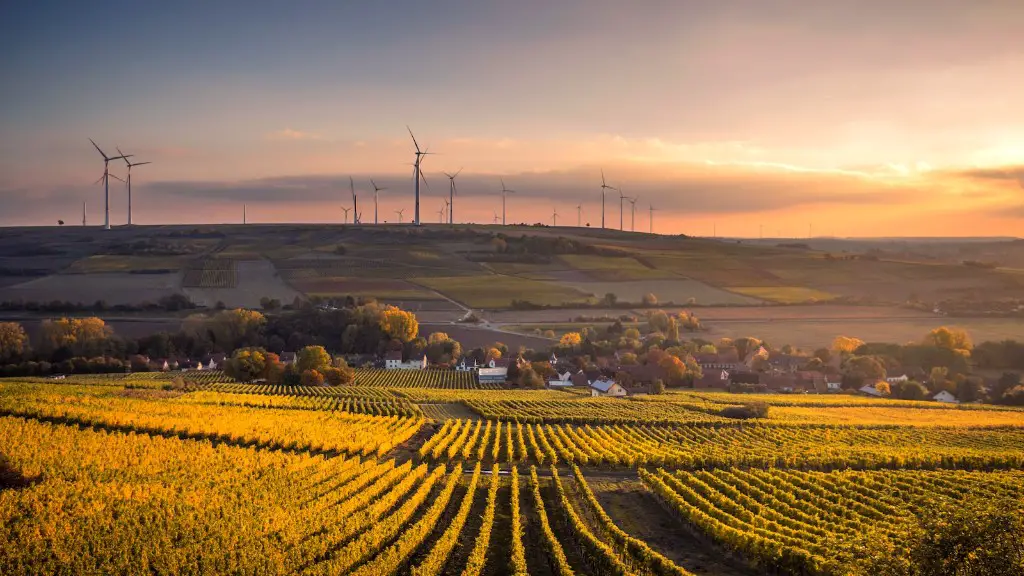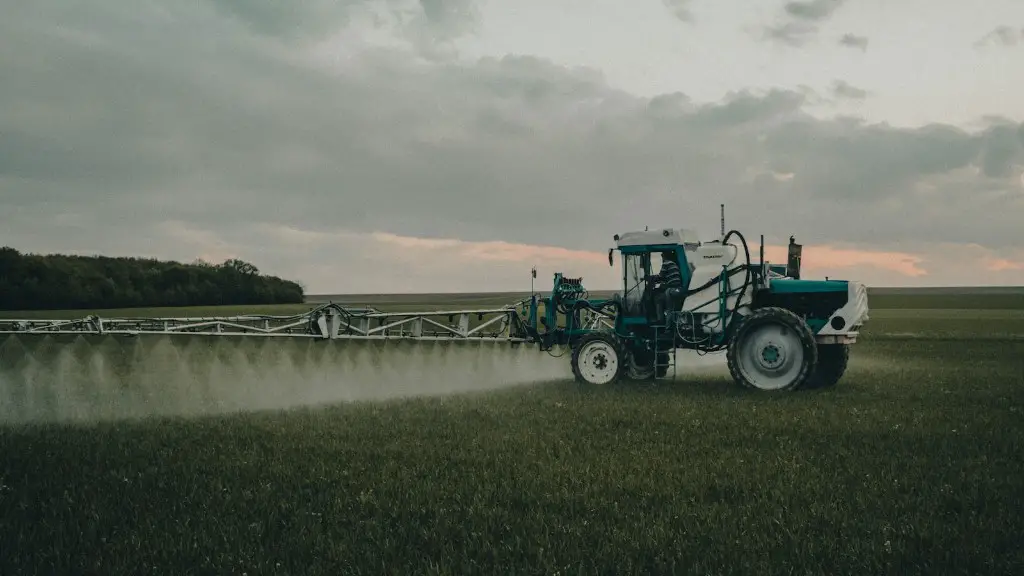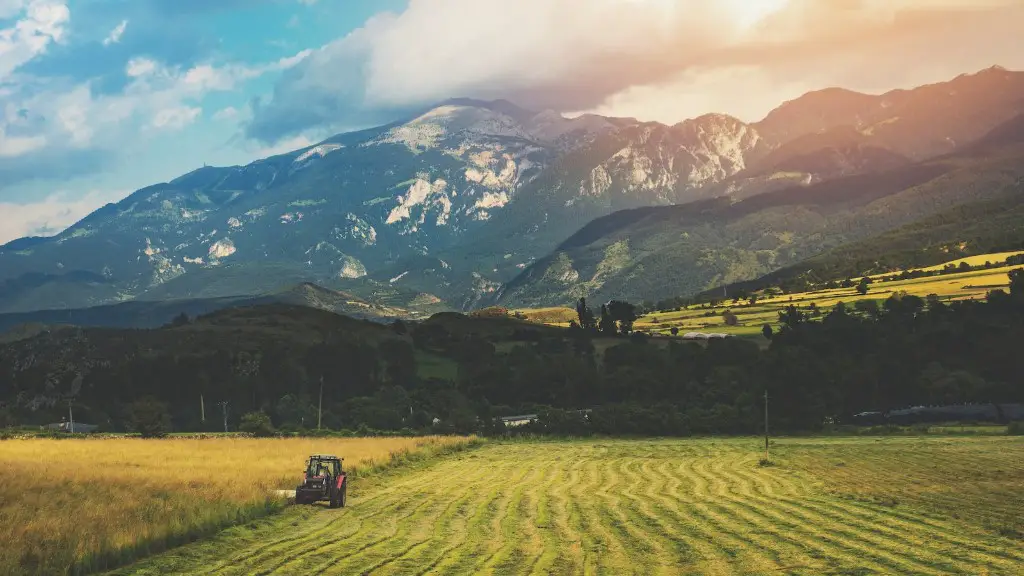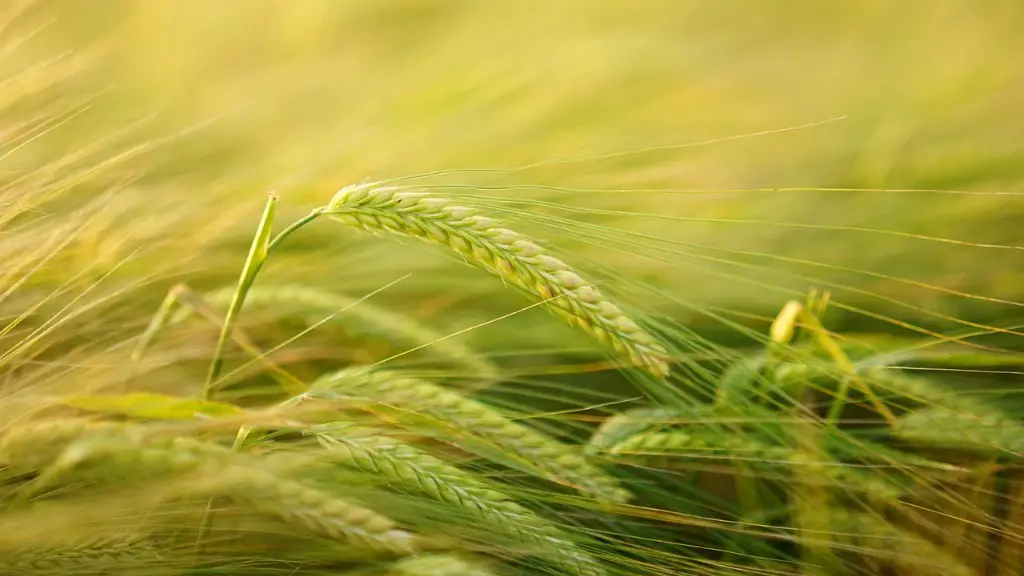Modern industrial agriculture, also referred to as industrialised farming, is a powerful ‘engine’ capable of producing more food than ever before – and significantly more food than would be possible without its technological advancements. But does it have a sustainable future? This is a challenging question to answer due to its complexity. To understand this question, we must evaluate the pros and cons of industrial agriculture and look at ways of making it more sustainable.
Industrial farming has enabled large-scale production of food and, coupled with advances in transportation, it has enabled the global trade of food. This has resulted in a reliable supply of affordable food across the world. Industrial agriculture has also increased yields, which allows more people to be fed with fewer resources. This is advantageous in places where food shortages may otherwise lead to malnutrition and hunger.
However, the negative impacts of industrial farming are considerable. These include excessive soil erosion and chemical runoff, which can lead to water pollution, the destruction of natural habitats, and the contribution to climate change. In addition, industrial farming has been linked to animal welfare issues such as overcrowding and the use of hormones and antibiotics.
In order for industrial agriculture to have a sustainable future, we must look for ways to reduce the environmental damage and improve animal welfare. To do this, we need to introduce regulations that reduce pesticide and fertilizer use, as well as look at alternatives such as organic farming and polyculture. We must also focus on techniques that reduce greenhouse gas emissions, such as the adoption of no-till farming and the use of wind and solar energy. Finally, there needs to be greater investment in research and innovation to develop more efficient and sustainable practices that can reduce the need for chemical fertilizers and pesticides.
Role of Government Regulation
Government regulation can play an important role in improving the sustainability of industrial agriculture. Regulators can impose limits on the usage of chemical fertilizers and pesticides, reducing their environmental impact and the risk of water pollution. They can also incentivize the adoption of more sustainable practices, such as no-till farming, and the use of renewable energy sources.
Moreover, government regulation can promote animal welfare. This could be done by enforcing specific measures such as limiting overcrowding, adequate resting times, and humane housing and handling practices. Finally, regulations can provide incentives for farmers to move away from industrial farming methods and adopt more sustainable systems such as organic farming and polyculture.
Overall, government regulation can be an effective way of promoting the sustainability of industrial agriculture. However, it is important to ensure that the regulations are not overly burdensome and do not hinder the efficiency of industrial farming.
Impact of Trade Agreements
Trade agreements can have a significant impact on the sustainability of industrial agriculture. Trade agreements can provide access to a larger market, which can create more opportunities for farmers to sell their goods. This can help farmers to diversify their production and increase their profitability. In addition, trade agreements can promote the sharing of best practices, technology and knowledge that can be used to develop more sustainable systems.
However, there are dangers associated with trade agreements. In particular, trade agreements can result in the displacement of traditional agricultural practices, which are often more sustainable than industrial farming. They can also result in the flooding of markets with cheap, often imported produce, which can negatively impact local farmers by driving down prices. Finally, trade agreements may also lead to the exploitation of agricultural workers due to regulations or even a lack of regulations in some countries.
Advances in Technology
Advances in technology can also play an important role in improving the sustainability of industrial agriculture. New technologies can be used to increase crop yields while using fewer resources. For example, precision agricultural techniques can be used to more accurately identify areas of soil fertility, reducing the need for chemical fertilizers and pesticides. In addition, artificial intelligence and robotics can be used to automate some of the most labor-intensive and time-consuming tasks such as weeding and harvesting.
Furthermore, technology can be used to increase the efficiency of farming systems. For example, automation and sensors can be used to monitor variables such as water quality and soil moisture, or to detect pests or disease. This can help farmers to take a proactive rather than reactive approach to managing their crops and livestock, reducing their overall input costs and making their operations more sustainable.
Role of Education & Awareness
The sustainability of industrial agriculture depends on the willingness of farmers to adopt more sustainable practices. This requires an understanding of the environmental costs of industrial farming and the potential benefits of sustainable farming systems. Education and awareness are therefore important tools that can be used to teach farmers about the potential for more sustainable practices, as well as the potential rewards.
Another area where education and awareness can be beneficial is consumer behavior. Consumers need to be informed of the potential environmental and animal welfare implications of industrial farming and the benefits of buying more sustainably produced products. Consumers should also be taught about the importance of supporting local farmers, who often produce food in more sustainable ways than industrial agriculture.
Economic Factors
The economics of industrial agriculture can also have a significant impact on its sustainability. Industrial farming benefits from economies of scale, meaning that as production increases, costs tend to decrease. This enables industrial farming to produce food more cheaply than other farming systems, such as organic farming. However, this economic advantage relies on the availability of resources such as energy, land, water and labor, all of which are limited. Therefore, if the availability of these resources declines, the economics of industrial agriculture become less attractive.
Another factor that can impact the economics of industrial agriculture is the price of inputs, such as chemical fertilizers and pesticides. As the cost of these inputs increases, the profitability of industrial agriculture decreases. This is why it is important to look for alternatives such as organic farming, polyculture, and the use of renewable energy sources, as these can reduce the costs of producing food.
Importance of Research & Innovation
Research and innovation are essential for the development of more sustainable agricultural practices. Research can provide a better understanding of how natural systems work, allowing us to develop systems that mimic nature and use fewer resources while still producing high yields. Innovation can then be used to create new technologies and practices that enable us to use the benefits of industrial farming while reducing its costs and environmental impacts.
Innovations in technology also have the potential to revolutionize the way we farm. Conservation agriculture, automation, robotics, and precision agriculture can all be used to increase the efficiency and sustainability of industrial agriculture. Additionally, advances in genomics and biotechnology can further reduce the need for chemical fertilizers and pesticides, making industrial farming even more sustainable.
